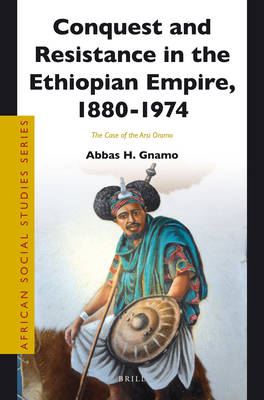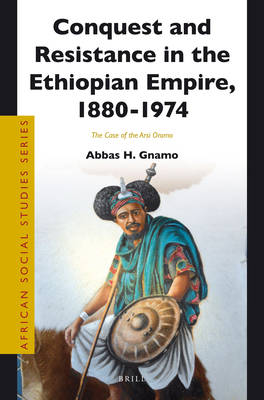
- Afhalen na 1 uur in een winkel met voorraad
- Gratis thuislevering in België vanaf € 30
- Ruim aanbod met 7 miljoen producten
- Afhalen na 1 uur in een winkel met voorraad
- Gratis thuislevering in België vanaf € 30
- Ruim aanbod met 7 miljoen producten
Zoeken
€ 148,45
+ 296 punten
Omschrijving
This work examines the philosophical origins of Oromo egalitarian and democratic thoughts and practice, the Gadaa-Qaalluu system, kinship organization, the introduction and spread of Islam and the consequent socio-cultural change. It sheds light on the advent of the Ethiopian empire under Menelik II, its conquests and Arsi Oromo fierce resistance (1880-1900), the nature and legacy of Ethiopian imperial polity, centre-periphery relations, feudal political economy and its impacts on the newly conquered regions with a focus on Arsi Oromo country. The book also analyzes the root causes of the national political crisis including, but not limited to, the attempts at transforming the empire-state to a nation-state around a single culture, contested definition of national identity and state legitimacy, grievance narratives, uprisings, the birth and development of competing nationalisms as well as the limitations of the current ethnic federalism to address the national question in Ethiopia.
Specificaties
Betrokkenen
- Auteur(s):
- Uitgeverij:
Inhoud
- Aantal bladzijden:
- 384
- Taal:
- Engels
- Reeks:
- Reeksnummer:
- nr. 32
Eigenschappen
- Productcode (EAN):
- 9789004258136
- Verschijningsdatum:
- 23/01/2014
- Uitvoering:
- Paperback
- Formaat:
- Trade paperback (VS)
- Afmetingen:
- 155 mm x 231 mm
- Gewicht:
- 589 g

Alleen bij Standaard Boekhandel
+ 296 punten op je klantenkaart van Standaard Boekhandel
Beoordelingen
We publiceren alleen reviews die voldoen aan de voorwaarden voor reviews. Bekijk onze voorwaarden voor reviews.








